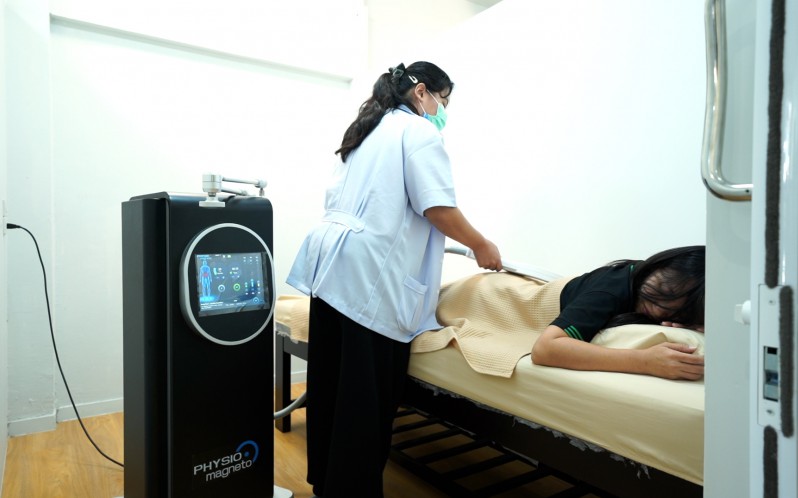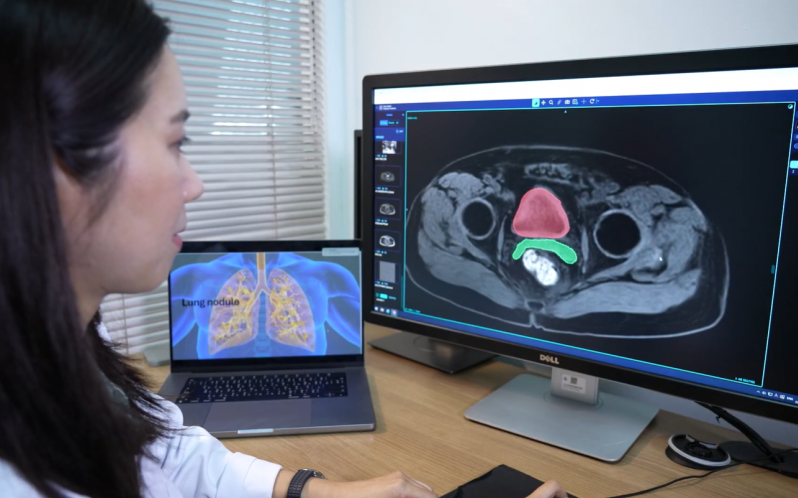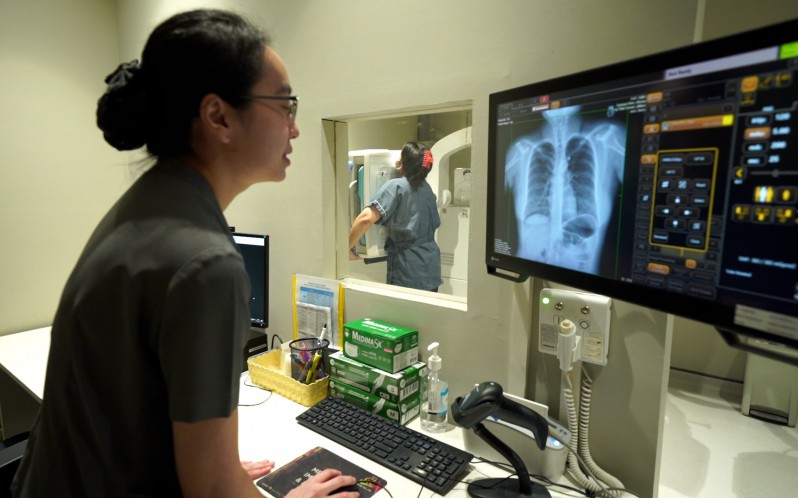Site:4
The Role of UHC in Strengthening Public Health and Fueling Local Innovation for Economic Growth: Thailand’s Model
 LOCATION : King Chulalongkorn Memorial Hospital
LOCATION : King Chulalongkorn Memorial Hospital

Background
At the global level, Heads of State and world leaders have committed to accelerating progress toward Universal Health Coverage (UHC) by 2030. However, in practice, progress has been slow and uneven. Even in countries that have achieved UHC, some are working to maintain and build on their progress, while others struggle to sustain it. A combination of factors—including conflicts, the impact of the COVID-19 pandemic, and worsening financial resources for health—has contributed to this stagnation
Achieving and sustaining Universal Health Coverage (UHC) has often been seen by some policymakers, governments, and health economists as a financial challenge, especially for low- and middle-income countries. However, UHC is increasingly recognized as a strategic investment that not only improves population health but also boosts productivity and economic stability in the long term.
Countries like India, South Korea, and Brazil have taken active steps to explore the potential of UHC in driving local innovation and fostering economic growth. India, for instance, has seen its health sector stimulate local innovations and employment opportunities, while Brazil has leveraged UHC to improve healthcare access and support its local pharmaceutical industry, contributing to economic development. These examples illustrate how UHC can be a catalyst for both improved health outcomes and economic benefits.
Thailand has established a policy that promotes the development and implementation of innovations within its Universal Coverage Scheme, encompassing advanced technologies for treatment, health promotion, and disease prevention.
This field trip offers participants the opportunity to experience firsthand the innovation development process in Thailand, showcasing research and development initiatives that facilitate data-driven and evidence-based decision-making for incorporating innovations into benefits packages. Key examples to be presented include 3D-Printed Titanium Skull Implants, Microalbuminuria Test Kits, the sPace Dynamic Foot, Precision Public Health, and Innovation in Medicine and Digital Health Center.
3D-Printed Titanium Skull Implants
Stroke is one of the leading causes of death worldwide. A 2019 survey revealed that over 101 million people globally have suffered from strokes, with 12.2 million new cases and approximately 6.5 million deaths annually. In Thailand, the 2020 Public Health Statistics Report by the Ministry of Public Health recorded 34,545 stroke-related deaths, a figure that continues to rise. Stroke symptoms fall into two main categories: 1) Acute cerebral ischemia (blockage), and 2) Cerebral hemorrhage (rupture). These conditions can be treated with clot-dissolving medications or surgical procedures like craniotomy. After recovery, neurosurgeons must close the skull, often using either the original bone or polymethylmethacrylate (PMMA), a widely used plastic material available under Thailand’s Universal Coverage Scheme (UCS).
Despite its widespread use, PMMA has limitations, particularly in terms of strength and infection resistance. As a result, there has been a growing shift toward titanium or titanium alloy plates for skull reconstruction. While Personalized 3D-Printed Titanium Skull Implants represent a significant advancement in this field, their high production costs and limited manufacturing capabilities worldwide have restricted widespread adoption.
Recognizing the need for affordable and effective alternatives, the Health Systems Research Institute (HSRI) partnered with Meticuly Co., Ltd. and the Faculty of Pharmacy at Mahidol University to conduct a study titled "Personalized 3D-Printed Titanium Skull Implants for Patients with Skull Defects in a Multicenter Clinical Study." This research aimed to evaluate the performance of locally produced titanium skull implants according to international medical device standards, ensuring high-quality and global competitiveness. It also focused on the implants' safety, cost, patient quality of life, and economic value while considering the budgetary and social impacts.
The study's findings demonstrated that locally made Personalized 3D-Printed Titanium Skull Implants offer superior performance and cost-effectiveness. These results were presented at the policy level, eventually leading to their inclusion in Thailand’s Universal Coverage Scheme health benefits package.
Albuminuria Test Kit
Chronic Kidney Disease (CKD) has been recognized as a significant health challenge and public health concern for the Thai population for a long time and has had an impact on the country’s economy. The Department of Disease Control reports that approximately 1 in 10 of the world population has abnormal kidney function, almost 1 million deaths due to untreated chronic kidney failure.
The CKD situation in Thailand is increasing rapidly. Since the medical and public health data warehouse system in 2022 revealed that 1 in 25 patients with diabetes and hypertension were newly diagnosed with CKD. Additionally, there are currently 420,212 cases in CKD stage 3, another 420,212 cases in CKD stage 4, and 62,386 cases requiring dialysis at CKD stage 5.
In response, the Department of Internal Medicine at Chulalongkorn University, in partnership with Health Systems Research Institute (HSRI) and its team, conducted research on the "Project to Develop a Screening System for Early Chronic Kidney Disease at the Primary Level with an Albuminuria Test Kit" was supported by HSRI.
This research project aims to assess the effectiveness of the CKD screening kit for early detection and to establish a point-of-care testing approach. This includes screening kidney disease test kit an automated system for patient data recording, processing, and reporting. The research project also focuses on developing innovative kidney function tests that display results effectively, enabling early screening for kidney disease. This advancement will enhance public understanding of the significance of albumin levels as early indicators of kidney health.
This field trip will offer participants an in-depth look at how evidence-based research is leveraged to integrate local innovations into national health policy. The goal is to reduce healthcare disparities, enhance patient outcomes, and support the sustainable development of the Thai healthcare system.
Precision Public Health
Thailand’s public health system has been exemplary, with achievements rooted in strong infrastructure, skilled manpower, and sound financial management. However, maintaining this success in the face of evolving challenges requires constant adaptation and innovation. One promising area identified by the World Health Organization (WHO) for improving global health is genomic technology. This cutting-edge science has the potential to revolutionize public health by providing tailored approaches to disease prevention and treatment.
Thailand has been an active participant in the equitable implementation of human genomics for population health. Equipped with advanced DNA sequencing technologies and high-performance computing, the country is well-positioned to leverage these tools for significant health benefits. Our focus has been primarily on the diagnosis and treatment of rare diseases, a crucial area that has previously seen limited progress in many regions.
Through these efforts, Thailand has already achieved notable success. Genomic technology has saved countless lives and significantly improved the quality of life for many patients. By identifying genetic factors behind rare diseases, clinicians can offer more precise diagnoses and treatments, reducing suffering and increasing life expectancy.
Looking to the future, Thailand aims to upscale its efforts, expanding genomic research and application to benefit even more people. One promising direction is the implementation of newborn sequencing programs, which could allow for the early detection and treatment of genetic disorders, further enhancing public health outcomes. As WHO has launched its genomics program for global health, Thailand’s commitment to equitable and innovative health solutions will continue to drive progress, ensuring that genomic technology serves as a transformative tool in improving global health.
Innovation in Medicine and Digital Health Center
The Faculty of Medicine, Chulalongkorn University invites international participants to explore its state-of-the-art Innovation and Digital Health Center, a hub dedicated to advancing healthcare through technology. The center focuses on fostering medical innovations, integrating digital health solutions, and enabling digital transformation in medical education and clinical practice. Visitors will experience how cutting-edge technologies such as AI, telemedicine, and big data analytics are being utilized to improve patient care, enhance learning, and promote research. Through partnerships with various sectors, the center aims to cultivate a sustainable ecosystem for medical innovations, ultimately transforming healthcare delivery in Thailand and beyond.
Objectives of the Study Visit:
- To explore the use of research evidence in policy decision-making for integrating medical innovations into UHC benefit packages.
- To highlight the role of Health Technology Assessment (HTA) in enhancing access to advanced medical technologies.
- To examine the benefits of UHC in promoting and supporting locally developed innovations.
- To understand how genomic technologies are being applied to improve public health outcomes in Thailand, particularly for rare diseases and early disease detection.
- To showcase how the Innovation and Digital Health Center at Chulalongkorn University leverages AI, digital health, and data analytics to advance healthcare, medical education, and research.
Field trip overview
This field trip will take participants through the journey of integrating locally developed medical innovations, such as Personalized 3D-Printed Titanium Skull Implants, and Albuminuria Test Kit into Thailand’s Universal Coverage Scheme (UCS). The visit will focus on how evidence-based research are utilized to inform policy decisions that shape the country’s healthcare system.
Participants will have the opportunity to learn directly from key stakeholders, including researchers, healthcare providers, policy makers, and patients who have benefited from the innovations. The trip will highlight the comprehensive research behind the inclusion of 3D-Printed Titanium Skull Implants and Albuminuria Test Kit in the UCS health benefits package, emphasizing the importance, cost-effectiveness analyses, and multidisciplinary collaboration.
The trip will also showcase Thailand’s Precision Public Health approach, leveraging genomic technology for tailored disease prevention and treatment, and will highlight the country’s advancements in rare disease diagnosis and treatment. In addition, participants will visit the Innovation and Digital Health Center at Chulalongkorn University, where cutting-edge technologies such as AI, telemedicine, and big data analytics are utilized to improve patient care, medical education, and research.
By visiting King Chulalongkorn Memorial Hospital, participants will gain firsthand insights into the practical applications of these innovations and witness the ongoing efforts to improve patient outcomes and healthcare equity in Thailand.
Expected Outcomes
- Participants will understand the critical role of research evidence, in the inclusion of new medical technologies in health benefit packages under UHC.
- Greater appreciation of Health Technology Assessment (HTA) and the importance of research as a key tool in improving access to advanced and locally produced medical technologies.
- Insight into the importance of UHC in promoting and sustaining local innovations, fostering a sustainable healthcare system.
- Enhanced knowledge sharing between participants on strategies for incorporating innovative healthcare solutions into national health policies.
Conclusion
This field trip will demonstrate how locally developed medical innovations, supported by rigorous research and economic evaluation, can be successfully integrated into national health policies. By highlighting the use of evidence-based decision-making in Thailand’s Universal Coverage Scheme, participants will leave with a clearer understanding of how these processes can be replicated to enhance healthcare access, reduce disparities, and improve patient outcomes in other contexts. The trip will also reinforce the vital role of UHC in supporting the sustainable development and adoption of innovative medical technologies.
 LOCATION : Government Center in Saraburi Province , Community Physical Therapy Clinic in Saraburi Province, Community Dental Clinic in Saraburi Province and Community Pharmacy in Saraburi Province
LOCATION : Government Center in Saraburi Province , Community Physical Therapy Clinic in Saraburi Province, Community Dental Clinic in Saraburi Province and Community Pharmacy in Saraburi Province
 LOCATION : Ramathibodi Hospital, Bangkok
LOCATION : Ramathibodi Hospital, Bangkok
 LOCATION : Bangkok Hospital, Bangkok (Private Hospital)
LOCATION : Bangkok Hospital, Bangkok (Private Hospital)




